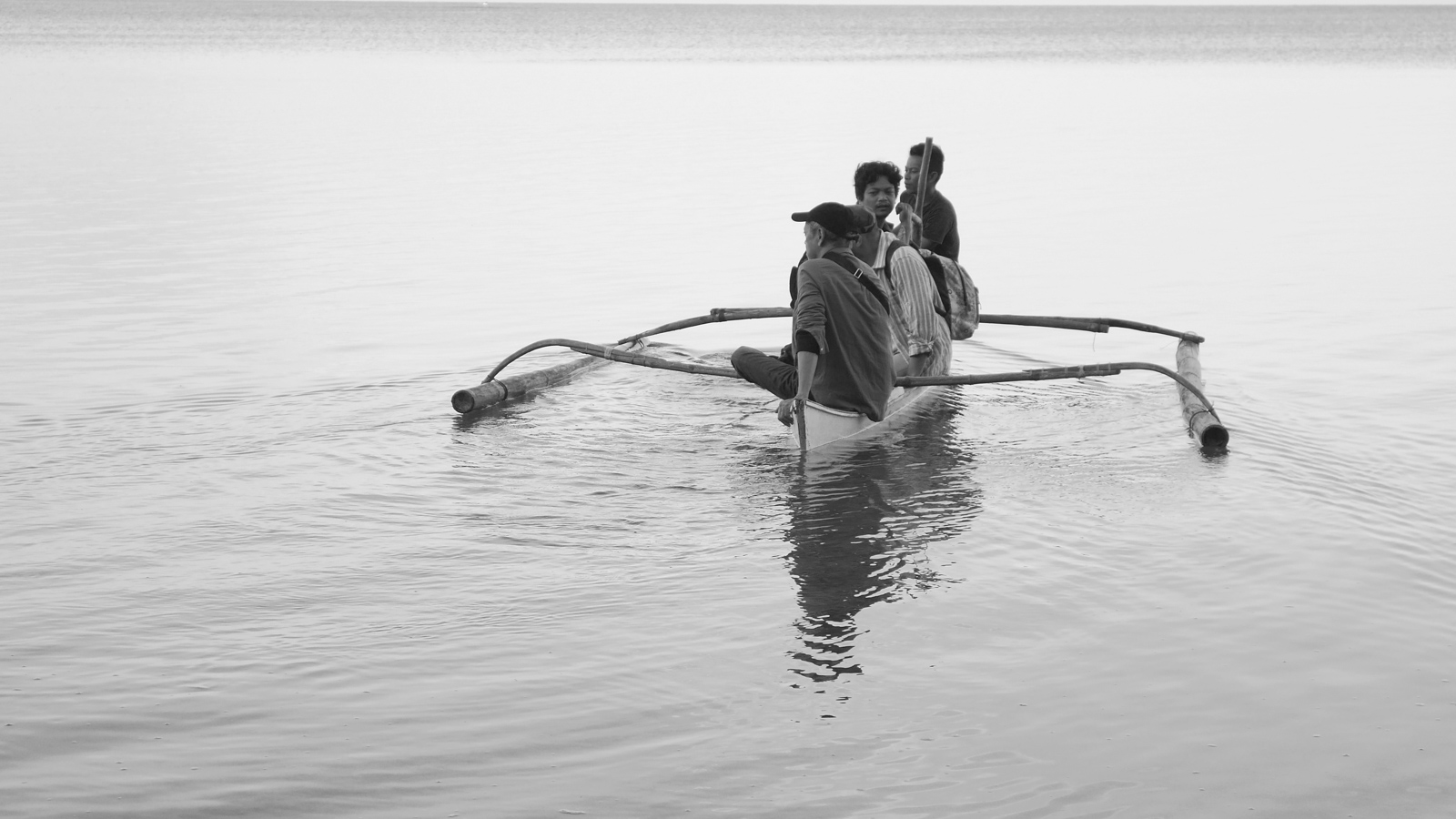With his latest feature Genus Pan, the king of slow cinema Lav Diaz proves that even his fleet-footed efforts can be an unrelenting experience. Clocking in at a smooth 157 minutes, this blistering allegory takes place almost entirely on the ghostly terrain of Hugaw Island. The poverty-stricken Filipino enclave is populated with superstitious citizens who often confront the misery and unfairness of modern life by embracing legends and mythologies of old.
A purposefully bleak exploration of moral rot, Genus Pan‘s stark black-and-white photography amplifies the contrasting shades between shifting natural light and our own self-destructive impulses. It feels stylistically connected to some of Diaz’s recent epics Norte, the End of History and The Woman Who Left specifically, but is far angrier in tone, presenting in potent detail the small acts of jealousy and greed that eventually lead to violence.
Much of the film’s scathing historical subtext gets referenced during conversations between three miners preparing for the long voyage home after a stint abroad. Longtime friends Baldo (Nanding Josef) and Paulo (Bart Guingona) seem to represent opposite sides of the human character spectrum. The former is strategic and manipulative, while the latter appears devout and kind. Their younger companion Andres (D.M.S. Boongaling) can’t quite make sense of this dichotomy, and isn’t happy with their current situation after being extorted for most of his paycheck.
Genus Pan, a title with Simian implications, situates these characters as equally vulnerable to otherworldly memories, desires, and hallucinations. Since local superstitions, supernatural torment, and mystical sightings are deeply rooted in their everyday lives, trekking through thick, mystical foliage brings them closer to an inevitable confrontation with personal ghosts. Like Diaz’s patient camera, larger historical traumas seem to linger alongside, permeating feelings of doubt and primal cruelty throughout the small village community they call home.
Once on site in this quiet rural corner, Diaz peels back the layers of corruption and fear mongering perpetrated by nearly every local official, criminal, and religious prophet. Most spiritual archetypes are revealed to be just another symbol used by institutions for controlling the masses, a tactic the Spanish and Japanese colonizers of the Philippines once weaponized. Now, their modern predecessors (opportunistic civil servants, murderous thieves, Duterte stand-ins) have only perfected these misinformation campaigns further.
In this windy purgatory, Diaz depicts a swirl of competing philosophies (Catholicism, greed, indigenous myths, fascism) eroding at the very fabric of emotional connection and trust that make us human in the first place. All the while, nature stands guard, providing a sonic and visual backdrop to mankind’s imminent self-destruction. Two of these cues, the recurring caws of an insanely loud rooster and piercing monkey screams echoing from the thick rain forest tree line, are indelible reminders of how small our Shakespearean wants and desires truly are in the grand scheme of things.
Genus Pan descends into a sort of pre-determined collective madness in the final stretch, as a riptide of zealotry and murder pulls Andres out into an inescapably compromised position. Every one of his attempts to do the right thing, tell the truthful story, and help the less fortunate just open himself up to the devils who survive off cannibalizing faith.
With this punishing and often rewarding drama, Diaz paints even the best of us as monsters in the making. That humanity has perfected our self-flagellating construct of sacrifice over multiple millennia and survived could be construed as a miracle. To Genus Pan, it’s merely more proof of our capacity to enact and endure needless suffering, a death cycle even the most sinister forces of the jungle can’t comprehend.
Genus Pan is playing at the San Diego Asian Film Festival.

